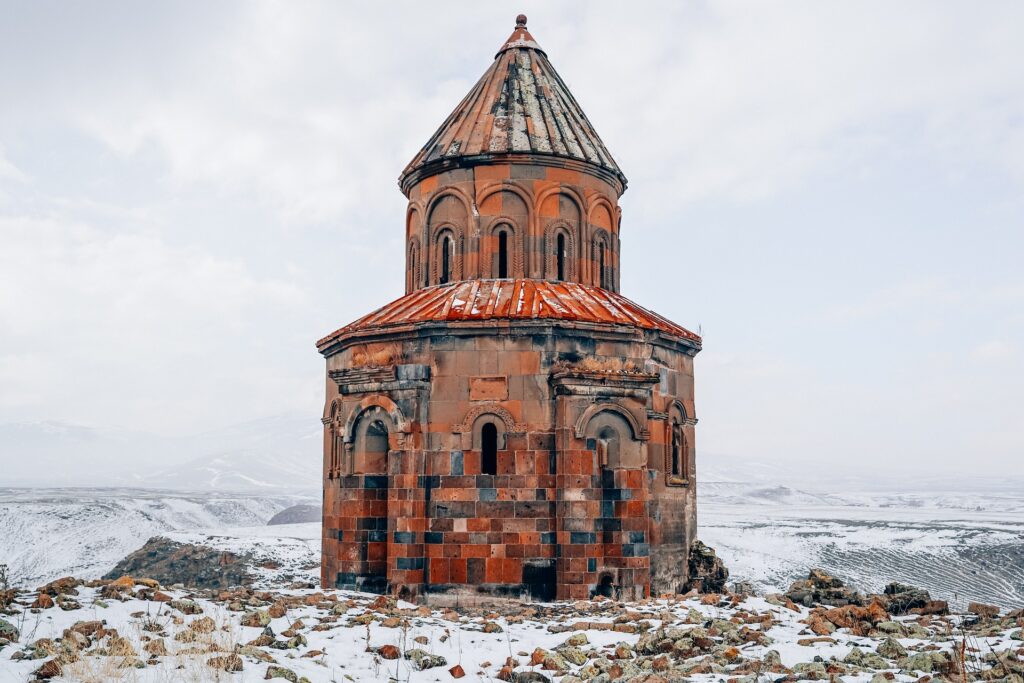Turkey and Armenia are poised to normalise relations non-existent since 1993. The move would be a historic reconciliation between two traditional enemies divided by strategic differences in the Caucasus and the 1915 events that took place in Ottoman empire.
Analysts following two years of secret talks said the two sides have now agreed on a sweeping package that includes opening a shared border closed since 1993, beginning diplomatic relations and setting up a bilateral intergovernmental commission on issues ranging from customs, tax and public health to history.
Turkey is also expected to release a “road map” on a solution on Nagorno-Karabakh, a region in Azerbaijan that has been under de facto Armenian control since 1994. “The parameters of the deal are very much set,” said Hugh Pope, the Turkey project director for International Crisis Group, which is currently working on a report about Turkish-Armenian relations.
“The only thing holding things back now is nerves.”
Analysts in Yerevan said the two governments have tentatively agreed to reveal the package on April 16th, when Turkey’s foreign minister is expected to fly to Yerevan for talks.
Senior Turkish foreign policy officials refused to confirm the date. The Armenian foreign ministry was unavailable for comment.
“These are highly sensitive negotiations and both sides have gone to great lengths to keep them secret,” said a Turkish foreign ministry spokesman.
A radical change of direction from Turkey, which closed its border with Armenia in support of its Azeri ethnic cousins fighting in Nagorno-Karabakh in 1993, the normalisation deal has been on the cards since the AK Party took power in 2002. Talks accelerated considerably after Turkish president Abdullah Gul attended a Turkey- Armenia football match in Yerevan in September 2008.
Thomas de Waal, author of a highly regarded book on the Nagorno-Karabakh conflict, thinks the deal has a lot to do with changes in Russia’s south Caucasian policy since it went to war with Georgia in August 2008.
“The war really drove home Armenia’s reliance on Georgia as a trade conduit,” he said.
“Russia saw that blowing up one Georgian bridge was enough to deprive [its Armenian ally] of imports for a week. Plus the fact is that Russia now owns Armenia’s economy. If you own the telecom sector and railways, opening up the border is in your interest.”
Analysts said the strongest objections to the package come from Azerbaijan, which fears, not unreasonably, that the end to a Turkish blockade on Armenia would reduce already limited Armenian incentives to negotiate for a settlement on Nagorno-Karabakh. But there is another, unforeseen stumbling block on the horizon: US president Barack Obama’s visit to Turkey on April 6th. Mr Obama’s visit is primarily aimed at mending relations with a crucial regional ally.
What makes it sensitive is that it comes barely a fortnight before Armenians the world over gather to commemorate 1915 events and may use the term “genocide”. Mr Obama has pledged to recognise 1915 events as a “genocide”.
Turkey staunchly opposes the use of the term.
“To be candid, I’m not sure this [Armenian issue] was factored in fully in the initial decision to schedule this trip,” said Mark Parris, a former US ambassador to Turkey.
Like Mr Parris, Turkish officials are confident the visit will pass without mishap. Washington is “well aware of the process and [is] working to facilitate it,” said a senior foreign policy official. With a motion for the recognition of 1915 events as “genocide” due to appear before the US Congress shortly, however, some think the normalisation package may be kept waiting in the wings for a while.
“If the Turks are smart, they will hold this back for leverage” until after April 24th, said a Yerevan-based analyst who is following talks closely.
For de Waal, meanwhile, the most important implication of a Turkish-Armenian deal is that it could spur Armenian-Azeri peace talks on Nagorno-Karabakh which he describes as being “a parody”.
“Historically the Armenian-Azeri dispute is but a brawl compared to the Armenian-Turkish dispute,” he said.
“If the Turks are doing a deal with Armenia, there is no reason whatsoever for Armenia and Azerbaijan not to be able to . . . talk constructively.”
Irish Times
